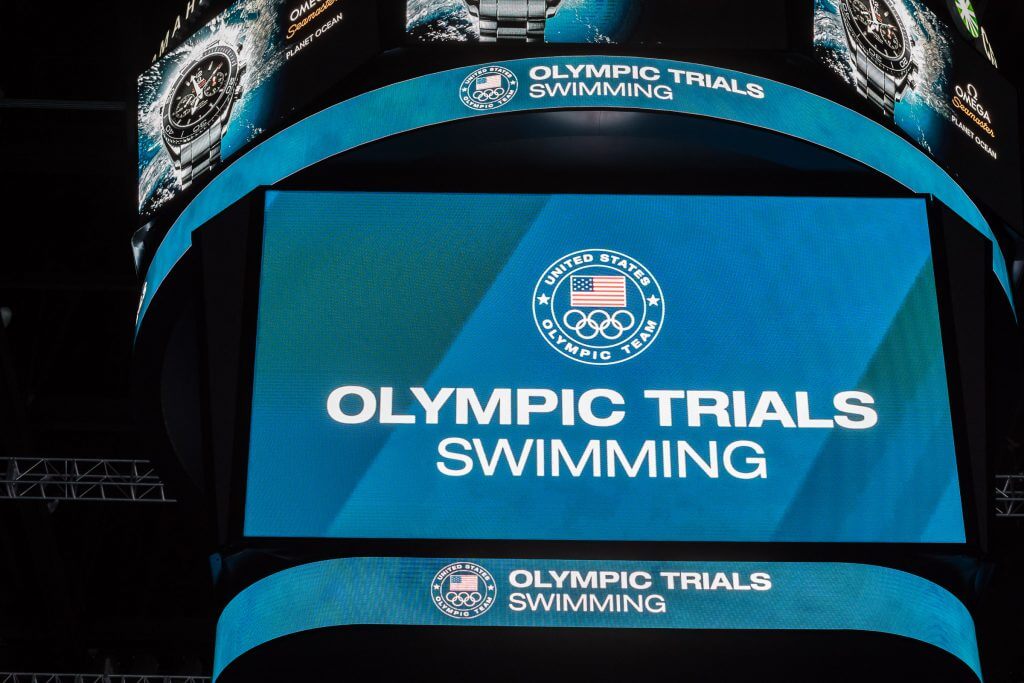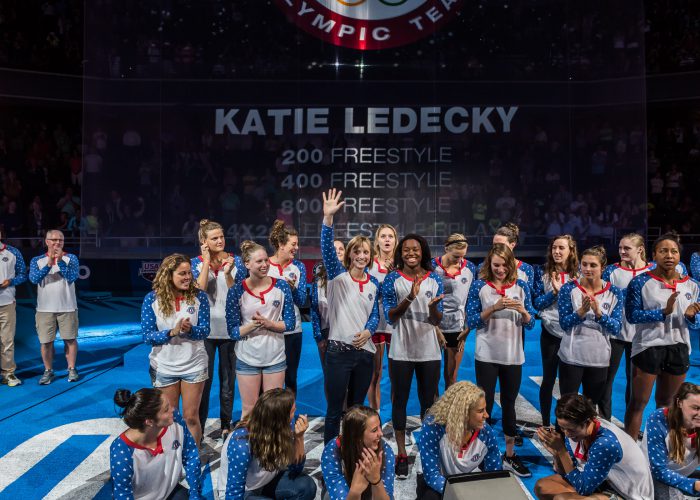The U.S. Swim Trials: Perhaps the Most Difficult Olympic Gauntlet

The U.S. Swim Trials: Perhaps the Most Difficult Olympic Gauntlet
From track and field to gymnastics and rowing to wrestling, no one wants to be the athlete who is narrowly denied an Olympic berth. Yet, that is the nature of sports, and regardless of the discipline, the heartache of a few can outweigh the euphoria experienced by those who achieve their Olympic dream.
The selection process for the United States Olympic Swimming Trials has been well documented through the years. But just in case you need a refresher, here it is: In order to earn an individual berth to the Games, an athlete must finish first or second in his/her event. Everything else is the equivalent to a last-place finish.
In less than two months, as the Olympic Trials unfold over nine days in Indianapolis, there will be plenty of feel-good stories and several stinging tales. As we prepare for those moments, let’s throw out this thought: It can be argued that no sport boasts an Olympic-selection process as difficult or potentially painful as the one used in swimming.
Let’s compare, for a moment, the three sports which are considered the banner disciplines of the Olympic Games — track and field, gymnastics and swimming. In track and field, countries are able to send three athletes per event to the Games. That one extra spot over swimming is huge, especially given the United States’ prowess in the pool.

Photo Courtesy: Peter H. Bick
Meanwhile, politics can become involved in the selection of the gymnastics team, as a committee selects those who will represent the USA. Any time a committee is involved, the door is open to such angles as bias and lobbying. Meanwhile, multiple competitions are used for consideration in gymnastics.
In swimming, there is no room for argument. The clock won’t hear of it. There is no, “But I set a world record last month.” It doesn’t matter.
“I think one of the things about this meet is that it’s iron sharpening iron,” said U.S. women’s coach David Marsh at the 2016 Trials. “There’s a lot of blood shed in that pool.”
There is no sympathetic side to the swimming trials. At some point every fourth year (of fifth due to COVID-19), it is guaranteed that someone will be locked out of the Olympics by a few hundredths of a second, maybe a hundredth. Perhaps that individual will have an opportunity to atone for the near miss in another event, and will get the job done. Perhaps, he/she will not, as was the case with Hayley McGregory.
At the 2008 Olympic Trials, McGregory was third in both the 100 and 200 backstroke events. Making her story all the more excruciating was the fact that McGregory was the third-place finisher in both events at the 2004 Olympic Trials, too. On four occasions, McGregory saw her Olympic hopes come up one slot short. It doesn’t get more painful.
In several events, the United States is deep enough that three or more athletes have the ability to contend for Olympic medals. Only two will go, and that third individual could watch the Games and see a time he/she has bettered earn a medal. It may not seem fair, but it is reality.
Swimming can be a lonely sport, evident in the training sessions which require a close friendship between the athlete and a solid black line. There are directions provided by coaches and time for chatter with teammates, but there is also a significant amount of solitary time. That isolation, alone, can make a shortcoming at the Olympic Trials even more difficult to digest. Does an athlete go back to that world, hoping to change the outcome four years later? Or, is it time to walk away? Decisions must be made.
No one — at least those who are right in the head — will ever say it is easy to qualify for a United States Olympic Team. However, by looking at various sports — in this case the Big Three of the Olympic stage — it can be argued that swimming is the toughest to make, based on the limited opportunities afforded and the hundredths of a second which separate the haves from the have nots. It’s a brutal process, and one that should not be overlooked.



